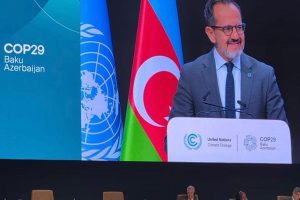
LNG export hopeful needs trunk line to tap a vast shale patch. Fresh delays likely after allegations of corruption in tender.
Jonathan Gilbert, Bloomberg News
BUENOS AIRES
EnergiesNet.com 06 14 2022
A proposed cross-country pipeline that would unlock Argentina’s vast natural gas reserves has been ensnared in political controversy and a legal investigation that may delay construction and worsen energy shortages.
Plans for the $1 billion conduit to begin hauling gas by next year’s Southern Hemisphere winter are unraveling after a top government official alleged there was corruption in a tender to supply steel pipes. That official, Production Minister Matias Kulfas, was subsequently forced out by President Alberto Fernandez, and a federal prosecutor and judge are now investigating the allegations.
The pipeline — which would stretch more than 400 miles (645 kilometers) from the Vaca Muerta shale zone in Patagonia to the province of Buenos Aires — is key to weaning Argentina off costly gas imports and unlocking the nation’s potential to become a major exporter of the fuel. It now faces fresh delays because it’s unclear how long the legal investigation will take and whether companies will want to bid to build it amid the political wrangling.
State-controlled Energia Argentina SA is pushing ahead with a second tender to design and build the pipeline. After a unit of Tenaris SA was the sole bidder in an earlier tender for pipes, Chief Executive Officer Paolo Rocca told a gathering of business leaders that there was “no corruption” afoot.
Energia Argentina also said there was nothing corrupt in the process. Kulfas was summoned to court on June 10, where he toned down allegations and said his original comments were part of arguments between rival government factions rather than charges of wrongdoing, according to news reports.
“With the courts getting involved, it’s very likely that in winter 2023 we’ll end up paying $28 for natural gas instead of $4,” Rocca said during the June 7 event in Buenos Aires.
This is Argentina’s second attempt to build the pipeline that drillers need so they can expand output in the Vaca Muerta. The first began about three years ago under the previous government of Mauricio Macri.
After woeful Argentine credit conditions killed that project, the current administration took two years to draw up a new process in which it decided to pay for the pipeline itself.
“Instead of seizing the moment — this global demand opportunity amid the misfortune of the Russia-Ukraine war — Argentina is suffering it,” said Nicolas Gadano, an Argentine consultant and university professor who specializes in the intersection of economics and energy.
The new setback is amplifying Argentina’s broader gas “failure,” Gustavo Lopetegui, the Macri-era official originally tasked with the pipeline, wrote in a June 9 column in La Nacion newspaper. “These serious mistakes will produce gas shortages, cutoffs in winter, and dollar outflows to pay for imports.
bloomberg.com 06 13 2022












